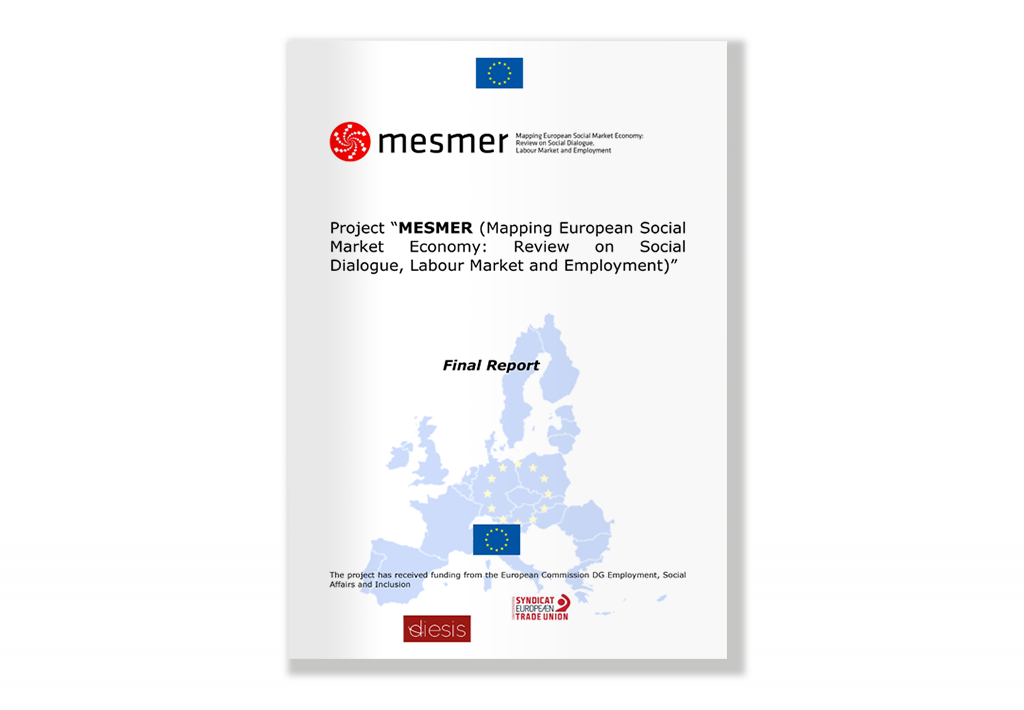MESMER
MESMER project has investigated social economy and social business from a not yet well known dimension, lets’ say the dimension of social dialogue, as the method for combining different demands and priorities of all stakeholders involved in the different dimensions of such peculiar economic environment. Social dialogue is the most suitable tool for promoting better living and working conditions and greater social justice. It is the instrument through which participatory and democratic governance can be enhanced in many fields. In this sense, the social business and social economy environment represents a fertile ground for such proactive interactions among all relevant stakeholders both at European, national company and territorial level.
After a short introduction on the concept of social economy and its main components in each country, the country reports descibe the main players of social economy and their role in social dialogue and industrial relationships. Part of the report is devoted to the analysis of work conditions in social economy enterprises and the involvement of workers and democratic governance in social economy and social enterprises (namely participation, consultation and information rights and models of business governance and involvement of workers). Each country report is completed by the description of one or more concrete examples of good practices of social economy enterprises in the filed of social dialogue. Section two of the report provides a crosscutting overview of the main findings of the research focused on the workers’ cooperative sector since, from the country reports, it emerged that it is the sector with more interesting practices and where the cooperation with trade unions is more developed. This overview focuses on some countries, namely Italy, Spain France and UK, and examines in depth positive behaviours and practices that can be replicated or serve as experience for other countries. Section three consists in a series of conclusions aiming at supporting and addressing the European and national policy level, in the view of contributing to the ongoing debate on the best way to shape initiatives for enhancing social business and social economy and their role in social dialogue
